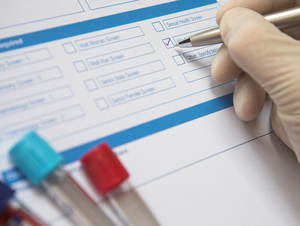I just received my test from my bloodwork and wanted to know if I should be worried about a calcium level that was 10.3 mg/dl?


If your blood calcium level is 10.3 mg/dl, it’s important to consider several factors before determining if there is cause for concern:
Age: Calcium levels tend to decrease slightly with age. If you are in your 20s or 30s, a calcium level of 10.3 mg/dl can be within the expected range. However, if you are 40 or older, it is less common to see levels above 10.0 mg/dl. Most of the time, persistent calcium levels above 10.0 in adults over about the age of 40 indicate primary hyperparathyroidism.
Other Labs: It’s crucial to check other labs before making a diagnosis. To interpret a calcium level, we need the PTH (parathyroid hormone) level, and Vitamin D is also helpful. A high calcium, paired with a high or “normal” PTH, indicates likely primary hyperparathyroidism. A very low PTH associated with a high calcium indicates that something other than parathyroid disease is the cause.
Supplements and Medications: High calcium levels can sometimes be influenced by supplements and medications. Are you taking Vitamin D supplements? High-dose Vitamin D can cause elevated calcium levels.
If I see a patient with a calcium of 10.3 mg/dl, the next step is repeating the labs and including a PTH and Vitamin D level with the calcium level.



